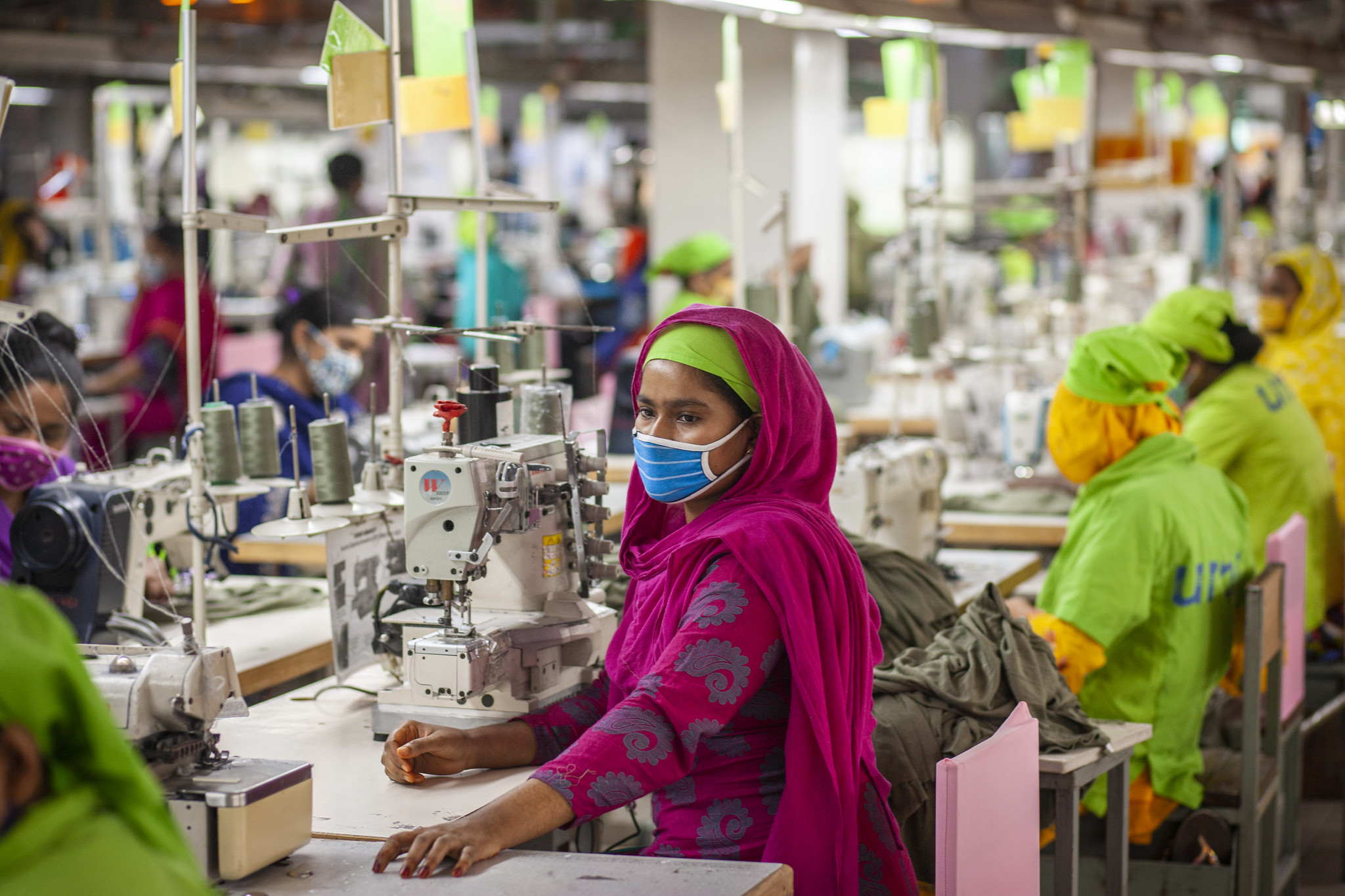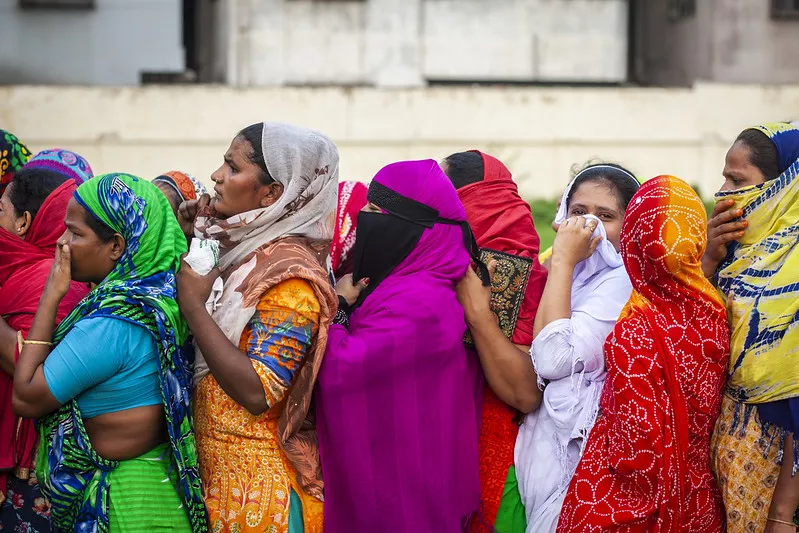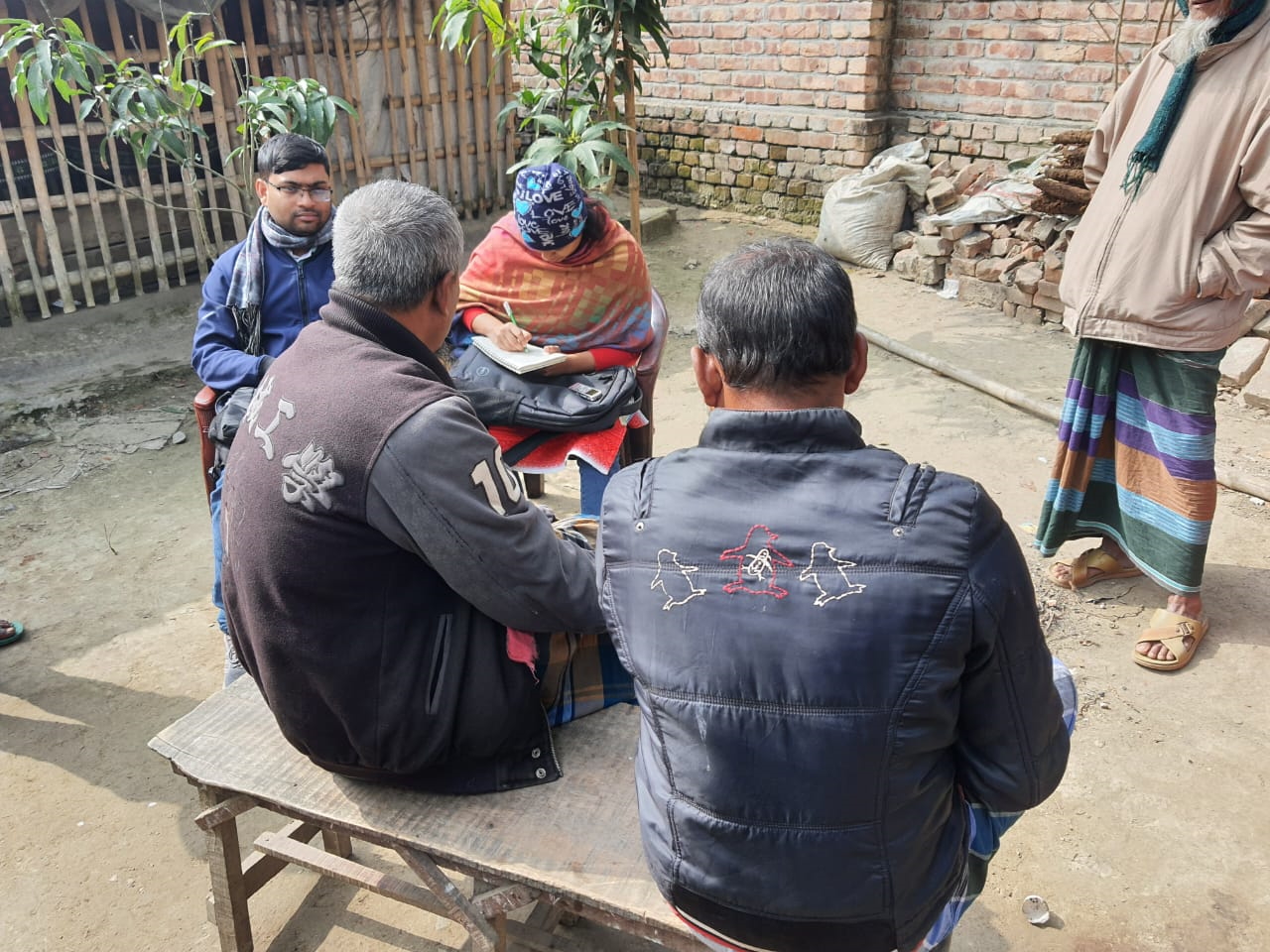IDS Research Fellow, Kate Pruce discusses the lessons generated from across a number of CLEAR research grants that looked at how social protection measures supported those made vulnerable by the Covid-19 pandemic.
The lockdowns and disruptions to livelihoods caused by the Covid-19 pandemic resulted in increased poverty, deprivation, stress, and poor mental health in Bangladesh and globally. Many governments introduced or expanded formal social protection programmes to address these poverty-related vulnerabilities. By January 2022, a total of 3,856 social protection and labour measures were planned or implemented by 223 economies, with cash transfers being the most widely used instruments (Gentilini et al., 2022).
Bangladesh tested several innovations, particularly in terms of target groups and digitalization. For example, the Prime Minister’s cash support scheme (Chowdhury and Hossain, 2022; Ahmed et al., 2023) which provided emergency assistance to informal workers. However, for many people the government safety net packages were unavailable to them, or they were ashamed to claim it, or it was not enough to meet their basic needs. Therefore households adopted alternative coping strategies, such as NGO interventions, loans and social support from families and communities.
The CLEAR synthesis paper on social protection for managing crisis response explores three themes that emerged across the CLEAR research projects.
Targeting and access
Bangladesh has an established social protection framework comprising around 120 different social protection programmes in FY 2021-2022, covering a wide range of groups considered to be vulnerable based on old age, illness and unemployment among other categories. Some of the key schemes include an Old Age Allowance (OAA), an Income Support Programme for the Poorest (ISPP), an Employment Generation Programme for the Poor (EGPP) and Vulnerable Group Development (VGD).
The government response to Covid-19 widened the coverage of social safety nets to protect poor people who lost jobs and income through measures such as increasing budgets for existing schemes and extending coverage to the formerly excluded urban poor populations (PPRC-BIGD, 2021). Further innovations included scaling up the digitalization of the payment process through mobile financial services (Siddiquee et al., 2022).
However, various flaws in the existing social protection system and delays to the digitalization process meant that many eligible beneficiaries were not included on registration lists or did not receive payments on time. Several CLEAR studies, including the Durdin-er Diaries project (Nazneen et al., 2024), found that access to informal networks, particularly affiliations to the ruling party and government officials, facilitated access to government support for example through inclusion on programme lists.
Legitimacy and accountability
Social protection is an important opportunity for performance legitimacy in Bangladesh, where political dominance limits civic space and reduces popular acceptance of the political process. However, the absence of systems for transparency and accountability regarding both allocation and disbursement of social programmes has led to suspicion and lack of trust.
Innovations involving digital platforms have had mixed results in Bangladesh. The successful Surokkha vaccine rollout demonstrated the value of digital initiatives within Bangladesh’s health response to Covid-19. However, attempts at digitization have hampered the delivery of government assistance through social protection – particularly a six-month delay in payments due to work on the national database (Siddiquee et al., 2022).
There have also been some high-profile government reforms focused on accountability and citizen feedback, although implementation has been weak so far (Chowdhury and Hossain, 2022; Ahmed et al., 2023). Limited digital access and literacy also means there is a need for analogue channels to communicate concerns and request assistance. Offline interfaces must therefore also be strengthened in order to ensure a more effective feedback system overall (Ahmed et al., 2023).
Stress, stigma and social norms
Economic uncertainty and poverty are associated with stress and poor mental health, especially among those with lower incomes and among women. Initiatives to alleviate poverty, such as social protection measures, can help to counteract stress and its consequences. However, stigma, negative attitudes, and pejorative treatment of people on low incomes receiving relief can also be a source of stress and needs to be taken seriously. in some cases due to the shame associated with asking for assistance.
Receiving government and non-governmental organization (NGO) support can be considered less shameful than receiving support from family and friends, with some respondents perceiving government support as a right (Roelen et al., 2023). However, experiences of asking for assistance are often still associated with shame, especially for those who have previously been non-poor (Roelen et al., 2024), and may prevent people accessing available support.
Stigmatization may be particularly prevalent among the historically marginalised groups identified above (Siddiquee et al., 2022), and the ‘Becoming Poor’ project revealed a widespread sense that people in poverty are devalued (Roelen et al., 2024).
A future knowledge agenda for Bangladesh
Two groups that need particular attention in crisis contexts are the ‘new poor’ and migrants. Several CLEAR projects identified ‘new poor’ households as a key category that emerged during Covid-19, defined as the vulnerable non-poor who fell into poverty due to the shocks from the pandemic. While some have recovered, others remain stuck in poverty even post-pandemic.
The Durdin-er Diaries (Nazneen et al., 2024) project distinguishes between the ‘never poor’ and ‘vulnerable non-poor’, and finds that new poor households that were never poor before Covid were more likely to be recovering and thriving, while those that were vulnerable non-poor were more likely to be stuck and sinking (see Table).
This is explained by stronger networks among the never poor, which facilitated coping strategies including accessing social protection. On the other hand, households that were non-poor before Covid-19 but had experiences of being transitory poor had a more fragile economic foundation, often taking loans, and lacked networks beyond their families and communities.
Categorization of households pre and post pandemic
| Never-poor | Vulnerable | |
| Recovering | A Thriving | C Reviving |
| Stuck | B Surviving | D Sinking |
Source: Durdin-er Diaries
There are unique issues faced by migrants and returnee migrants, and substantial policy and research gaps on migration in crisis contexts that need to be urgently addressed. The CLEAR project on migration proposes several innovations including products to stimulate savings and spur investments benefit migrants as well as a comprehensive and nationally representative survey covering the cross-sections of migrant workers and a resulting data set.
Social protection responses also need to be expanded to better reflect the needs of people in and near poverty in urban Bangladesh. The emergency assistance provided to urban informal workers during Covid-19 was an important intervention but the low transfer amount and one-off nature meant that it was not sufficient.
The potential and challenges of digitization – both as an accountability tool and in relation to programme delivery – is increasingly recognised as an issue that needs more attention. This is a global debate, which also emerged as a concern across the CLEAR projects in Bangladesh. Digital systems can improve efficiency and transparency as well as making data accessible, for example through a national database. However there are also risks of exclusion due to lack of digital access as well as the potential for monitoring and surveillance of citizens through digital means, for example the use of digital IDs.
Insights from the CLEAR research and wider lessons from Bangladesh’s response to Covid-19 can be used to strengthen the country’s social protection system in the longer term in the context of multiple crises.
Further reading:
Read the CLEAR Synthesis Report 2: Innovations and Challenges in Crisis Contexts: Bangladesh’s Social Protection Response to the Covid-19 Pandemic


